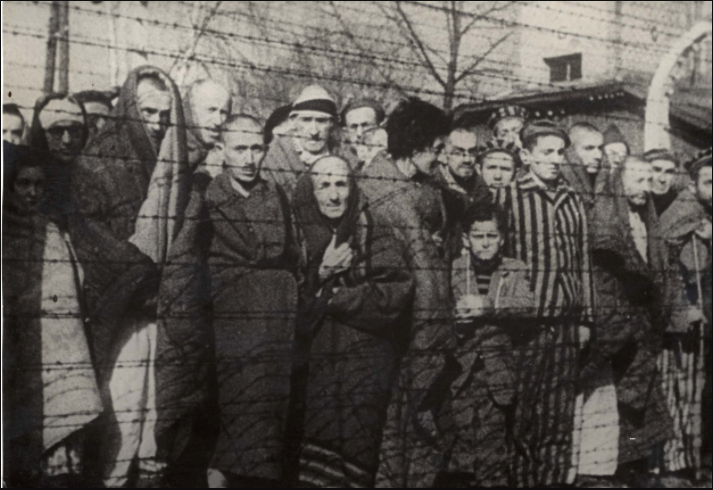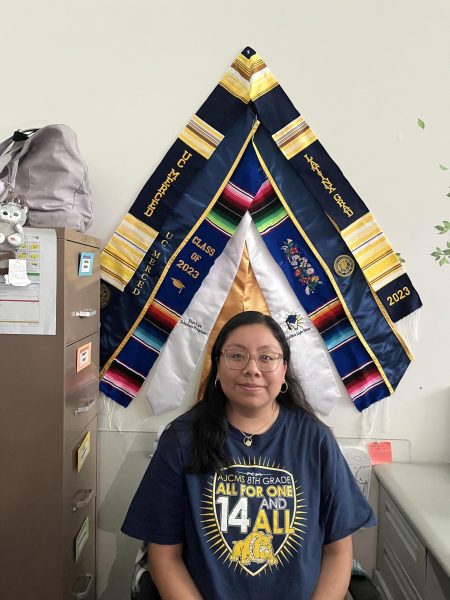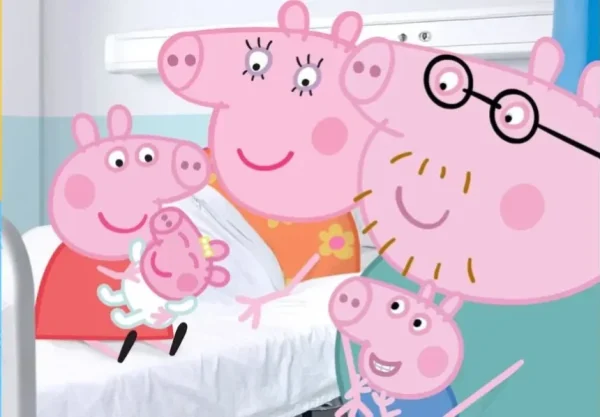Surviving the Holocaust
Jews have been discriminated against since the middle ages in places like Germany, Poland, and many other places. They were sometimes only able to work in or learn certain professions. Discrimination against Jews peaked with the Holocaust, when Adolf Hitler rose to power.
In 1933, Hitler sent German soldiers to round up Jews and placed them in ghettos, isolated districts of towns that they were not allowed to leave from. Later they were moved to concentration camps. There were mainly 23 well-known concentration camps, but there came to be 1,000 concentration camps that existed at one point. In the concentration camps, the Nazis (German soldiers) mistreated the imprisoned by forcing them to do inhumane harsh jobs. People who weren’t able to work, such as elders, people with disabilities, mentally ill people, children and even people who the German soldiers believed were not capable of working anymore, were sent to gas chambers to be killed off. People selected to be killed were made to undress, locked inside a room and killed with poisonous chemicals dropped through a hole in the ceiling.
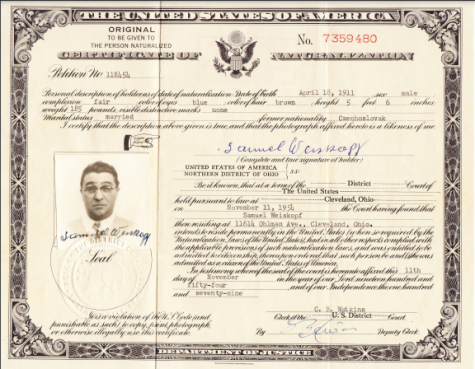
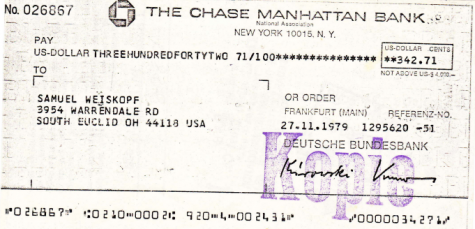
Teacher Carl Finer’s grandfather, Samuel Weiskopf, survived a concentration camp, but most of Weiskopf’s family did not.
Weiskopf was born in Czechoslovakia (now split into the Czech Republic and Slovakia – Weiskopf was Czech). Before the war, he was training as a rabbi (religious leader) and got married to Dora Goodman. Weiskopf had two sisters, Ether and Lili Weiskopf, who lived in the same town.
But in 1938, with Nazis now occupying the country, Jews in his town were sent away to concentration camps. Many years later, in a legal affidavit, Samuel’s sister Esther testified that:
“…her brother [Samuel] was taken away from their hometown and in June 1938, she and her sister Lily and other residents including Dora Goodman Weiskopf were taken to the concentration camp in Auschwitz, Poland and later Dora was sent to and died in a gas chamber.”
Esther and Lily, along with Samuel, survived the camps doing forced labor. After spending time in a “displaced persons” camp in Germany, Samuel eventually immigrated to the United States and moved on with his life, landing in Cleveland, Ohio, where he was able to get a job as a carpenter with the help of cousins.
The USC Shoah Foundation is an oral history project created to preserve the stories of Holocaust survivors. One of their interviews was with Irving Roth, a survivor dedicated to getting his life story out to people.
Roth was born in Slovakia in 1929 to a household that owned a profitable lumber business. In 1938, when the Germans occupied their country, Roth’s family left their hometown and took off to Hungary to escape from the unfairness they would encounter. In 1944, Irving and his brother Bondi were deported and taken to a concentration camp, Auschwitz.
After being separated during the death march to a different camp, Buchenwald, Irving and Bondi never got to see each other ever again. Upon liberation of the imprisoned, Roth was able to rejoin his parents. Roth and his parents later all immigrated to the US in 1951.
There are many books that describe the perspectives of Holocaust survivors such as “Surviving Hitler: A Boy in the Nazi Death Camps by Andrea Warren.” This book narrates the life of Janek “Jack” Madelbaum, a Holocaust survivor that was locked up in concentrations camps, starved, and put to do hard labor.
Jack lived with his father, Majloch, his mother, Cesia, his sister, Jadzia, and his brother Jakob, in Gdynia, Poland along the shores of the Baltic Sea. Majoch Madelbaum was a thriving owner of a fish canning factory. The Madelbaum family was wealthy, living in an apartment among one of the most popularly known streets of Gdynia. During the persecution of many people, rumors about the German army bombing Poland started to spread. Majoch was very uneasy, so he decided that until the danger was over, his wife and children should go stay with his father. Everybody in Gdynia were frightened and most of them went into hiding.
It was decided that Majoch should stay in Gydnia to keep the factory and house safe while the rest of the family would travel by train to get to their grandfather’s home. Time passed – Jack had no idea where his father was located, which turned out to be because Majoch had been sent to a concentration camp.
The remaining Mandelbaum family moved out of their grandfather’s house since they had found an apartment. However Jazdia (Jack’s sister) was offered a job of babysitter. She decided to accept the employment and so was left behind. Jack eventually started working to provide for his family. He substituted as a worker that labored for the German soldiers.
One dark night at 5:00 am, the soldiers broke into people’s apartments– including Jack’s and his family’s. Jack, Cesia, and Jakob were held captive for a while; nonetheless they were later taken to a very tall building in which families were separated into two sections. It was either hard labor or taken straight to a concentration camp. Jack was separated from his mother and brother, shoved among a truck having not one single clue of where his mother and brother were taken to. Jack was taken to a concentration camp where he did hard labor, was starved, and oppressed. He had to live through many complications being in the camps he was assigned to, but when he was finally liberated, he reunited with his uncle but never got to see the rest of his family.
In conclusion, the Holocaust was a very important milestone when around 55 million people died because of the decisions that Adolf Hitler and others made. Samuel Weiskopf, Irving Roth, and Janek Mandelbaum were only three out of millions of people that got discriminated against. These and many other victims were all made to feel less human for being Jewish or for other reasons.
